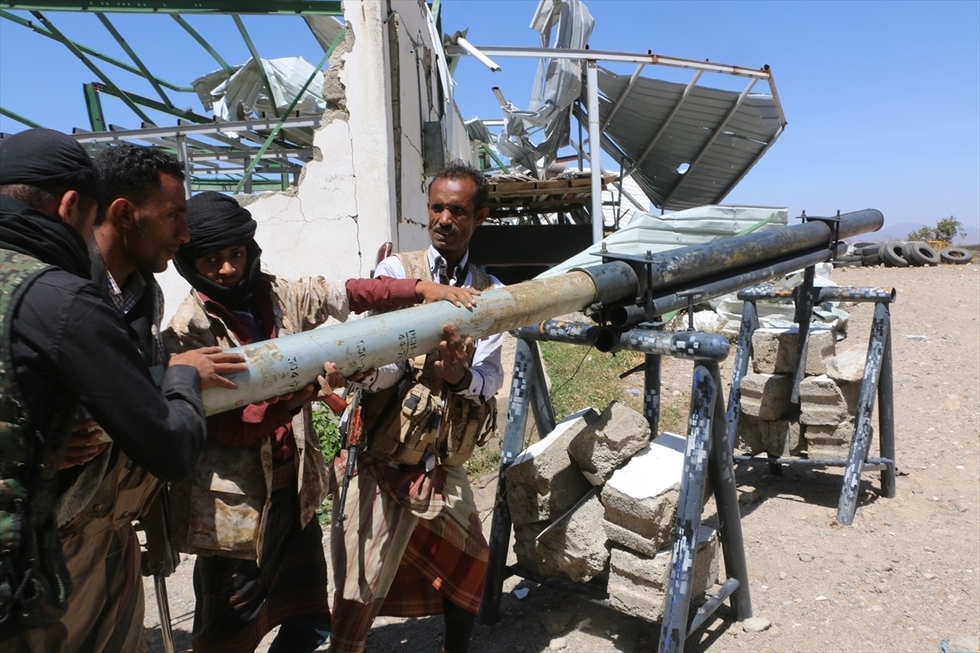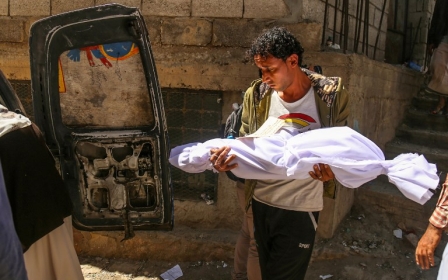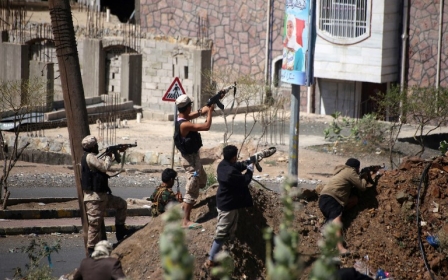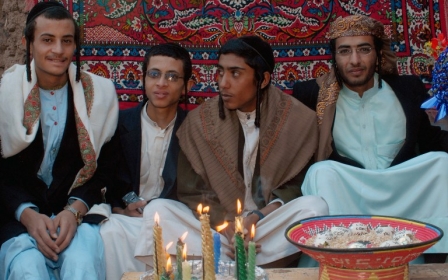Rights groups urge end to Saudi arms sales over Yemen deaths

Top rights groups Tuesday urged the United States and other nations to stop selling arms to Saudi Arabia after it was accused of killing hundreds of civilians in its year-long air war in Yemen.
Amnesty International and Human Rights Watch called on Washington, London and Paris to stop weapons deliveries to Riyadh, which is leading a mainly Sunni Arab coalition that launched air strikes against Houthi rebels in Yemen on 26 March last year.
The UN human rights chief said last week that more than 3,200 civilians had been killed in the last year, with the vast majority of those deaths caused by coalition strikes.
London-based Amnesty called on Washington and London to "halt all transfers of arms for use in the Yemen conflict".
"Saudi Arabia's international partners have added fuel to the fire, flooding the region with arms despite the mounting evidence that such weaponry has facilitated appalling crimes," James Lynch, Amnesty International's regional deputy director, said in a statement.
HRW also urged the United States, Britain and France to suspend all weapons sales until Saudi Arabia curtails its air strikes.
"For the past year, governments that arm Saudi Arabia have rejected or downplayed compelling evidence that the coalition's air strikes have killed hundreds of civilians," New York-based HRW's deputy global advocacy director, Philippe Bolopion, said in a statement.
"By continuing to sell weapons to a known violator that has done little to curtail its abuses, the US, UK and France risk being complicit in unlawful civilian deaths," he said.
Saudi Arabia is the world's second-largest arms importer, according to the Stockholm International Peace Research Institute, and the United States and Britain are its main suppliers.
'Schools, hospitals, homes' hit
Riyadh launched the intervention in Yemen last year after Shia Houthi rebels seized control of large parts of the country, including the capital Sanaa, and forced the government into exile.
Loyalist forces backed by coalition strikes and ground troops have since retaken much of the south but have failed to dislodge the rebels from other areas including Sanaa.
Efforts to organise peace talks have so far made little headway and concerns have been growing as the number of civilian casualties mounts.
Washington expressed its worries last week, with White House spokesman Josh Earnest saying the conflict "has caught too many innocent civilians in the crossfire".
The coalition has said major operations are soon set to wind down and denied any intentional targeting of civilians.
The coalition's spokesman, Brigadier General Ahmed al-Assiri, told AFP last week that an independent panel had been formed to investigate civilian deaths in the conflict.
A strike earlier this month on a market in northern Yemen that according to the United Nations killed 119 people, including 106 civilians, has amplified concerns.
Rights groups have accused the coalition of carrying out indiscriminate bombings, including through the use of cluster bombs.
Amnesty said it had documented at least 32 air strikes by the coalition "that appear to have violated international humanitarian law" and killed 361 civilians.
HRW said it had documented at least 36 "unlawful airstrikes" that killed at least 550 civilians, including on schools, hospitals and homes "with no evidence they were being used for military purposes".
"How many more air strikes need to wreak havoc on civilians before countries supplying aircraft and bombs to the coalition pull the plug?" Bolopion said.
New MEE newsletter: Jerusalem Dispatch
Sign up to get the latest insights and analysis on Israel-Palestine, alongside Turkey Unpacked and other MEE newsletters
Middle East Eye delivers independent and unrivalled coverage and analysis of the Middle East, North Africa and beyond. To learn more about republishing this content and the associated fees, please fill out this form. More about MEE can be found here.




